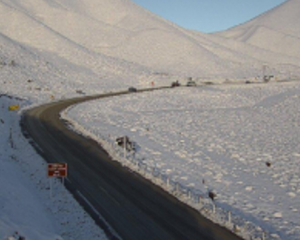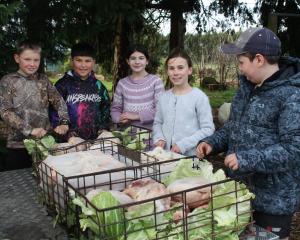
The aim of the three-year programme, established by Pipfruit New Zealand and Hort Research in September last year, was to produce the best quality fruit in New Zealand with nil to ultra-low chemical residues at harvest.
There is a window of opportunity available to New Zealand to be a premium, niche player in the world marketplace.
New Zealand's low-residue capability cannot currently be matched by southern hemisphere competitors, in particular South America, producing large quantities of apples and good quality fruit at low cost.
The Integrated Fruit Production system introduced in New Zealand in the 1990s has given the industry the ability to produce fruit with little residue, but also without the application of harsh chemicals still in use offshore.
Competitors such as Chile are estimated to be at least five years behind in this development, although they are under mounting pressure to change to similar technology.
In Otago there are 16 export growers in the Apple Futures programme, a 100 per cent uptake of the programme by the Otago pipfruit industry.
Three pear growers and about four apple growers who supply the local market are also using the programme, including some who are selling apples on roadside stalls in the region.
Apple Futures regional co-ordinator Jenny Fraser said residue testing in Otago had been taking place for cox's orange, pippin and royal gala.
The later variety braeburn would be tested at harvest for chemical residues.
‘‘To date, three residue tests have been returned from Assure Quality labs - one test showing no detectable residues and the other two showing residues at very low, low levels- a very good result,'' she said.
The programme differed to that of organic growers, who only used organically based spray programmes to protect and enhance beneficial insects and organisms in the orchard and did not use conventional weed sprays such as the herbicide Roundup, Mrs Fraser said.
Apple Futures uses a spray programme with conventional chemicals targeted at particular pests or diseases and is used as and when required, not broad spectrum, as in the past.
This spray programme is designed to protect beneficial insects and organisms in the orchard.
Regular meetings and discussion groups have been held in the region since September with Apple Future growers.
‘‘Changes have been made as the season has gone along in regard to application timing and withholding periods, or if there has been any disease or pest issues.''
Part of Mrs Fraser's role has been to answer Otago growers' questions and queries.
‘‘If I don't have the answer, I have ready access to New Zealand's leading expertise.''
The royal gala harvest is under way and packing will start once cox's are finished.
Braeburn apples will be picked after Easter.












